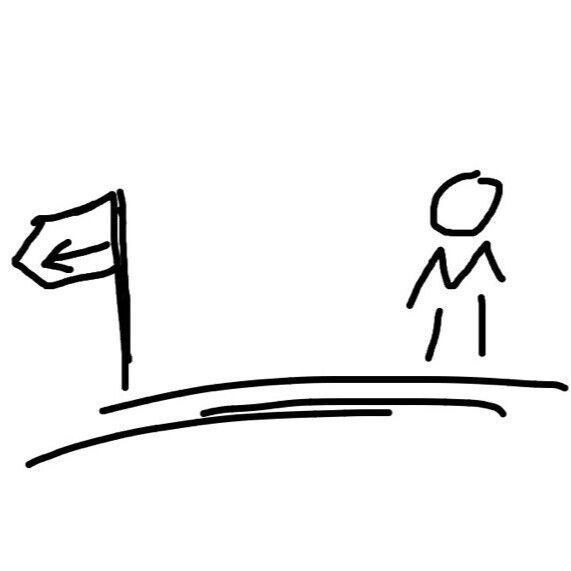slate 系列
简述
- slate 是一个完全可定制的构建富文本编辑器的框架,本质是一个构建于 React 之上的 div contenteditable。
- 文档中提到其逻辑都是通过各个插件实现的,可以不用受到“核心”不“核心”的影响。
- slate 的主要插件只有三个,分别是 slate-react、slate-history、slate-hyperscript。
- slate 本身提供了逻辑处理;
- slate-react 是做视图层逻辑(官方。slate 的视图层组件还有包括 vue 和 angular 在内的其他衍生品,这里基于 react 的组件是由官方维护);
- slate-history 记录状态,配合撤销反撤销操作;
- slate-hyperscript 用于提供 jsx,可以在比如粘贴一段 HTML 做转换处理时使用。
细节
slate 逻辑本质是基于对一段数组对象数据的处理
[
{
"type": "paragraph",
"children": [
{
"text": "测试"
},
{
"text": "加粗",
"bold": true
},
{
"text": "斜体",
"italic": true
},
{
"text": "下划线",
"underline": true
},
{
"text": " "
},
{
"children": [
{
"text": "链接"
}
],
"type": "link",
"info": {
"url": "https://taptap.com"
}
}
]
},
{
"id": "sWIx",
"type": "image",
"info": {
"url": "https://img2.tapimg.com/moment/etag/FkNk2byCBYVIw0xr2tA43mSpoxDs.png"
},
"children": [
{
"text": ""
}
]
}
]
如这段数组对应的是下图两行展示 
这段数组中的两个对象,对应了视图层的两行。对于 slate 来说,每行既是一个对象,我们的增删改查都是通过对这段数组的操作。
slate 对于操作(Operations),分为了如下 9 种
type BaseInsertNodeOperation = {
type: 'insert_node';
path: Path;
node: Node;
};
type BaseRemoveNodeOperation = {
type: 'remove_node';
path: Path;
node: Node;
};
type BaseInsertTextOperation = {
type: 'insert_text';
path: Path;
offset: number;
text: string;
};
type BaseRemoveTextOperation = {
type: 'remove_text';
path: Path;
offset: number;
text: string;
};
type BaseMergeNodeOperation = {
type: 'merge_node';
path: Path;
position: number;
properties: Partial<Node>;
};
type BaseSplitNodeOperation = {
type: 'split_node';
path: Path;
position: number;
properties: Partial<Node>;
};
type BaseMoveNodeOperation = {
type: 'move_node';
path: Path;
newPath: Path;
};
type BaseSetNodeOperation = {
type: 'set_node';
path: Path;
properties: Partial<Node>;
newProperties: Partial<Node>;
};
type BaseSetSelectionOperation =
| {
type: 'set_selection';
properties: null;
newProperties: Range;
}
| {
type: 'set_selection';
properties: Partial<Range>;
newProperties: Partial<Range>;
}
| {
type: 'set_selection';
properties: Range;
newProperties: null;
};
形成了对于步骤的记录,也就是能够做到 undo redo 的操作,另外在此基础上,为了减轻心智负担,slate 做了进一步封装,也就是 Transform 以及 Editor。
Transform 能够内部消化对于 Range 的处理。
更高级的,还有 Commands。也就是 Editor,上面所谓的“减轻心智负担”,也就是说一般情况下,我们在调用 Editor 时是不需要再传递路径等的。也可以理解为是对 Transform 的封装。
举个例子 Operations 中的 insert_text 和 insert_node,Transform 会将其封装成 insertText 和 insertNodes 方法,其都接收包括 at 在内的多个 options。
而 Editor 中的 insertText 方法,则包含了 Transform 中的这两个方法,我们无需再外部判断当前是否是一个 marks 而决定使用 Transforms.insertText 还是 Transforms.insertNodes,也不用传递 at 等参数。在某些命令式的情况下使用很方便。
上面提到了 Range,所谓 Range 是 slate 对路径的管理。
interface Range {
anchor: Point;
focus: Point;
}
如上所示,这便是 Range 的定义,anchor 是初始点,focus 为结束点。通俗来说就是比如框选了一段文字,mousedown 的位置即为 anchor,mouseout 的位置即为 focus。一般 focus 而没有选中一段文字的状态下 anchor 和 focus 是同一个 Point。
那么这个 Point 又是何物呢
interface Point {
path: Path;
offset: number;
}
type Path = number[];
这是形容光标的具体位置,举个例子,上面图片中若光标在“测”与“试”中间,此时的 Point 即为
{
"path": [0, 0],
"offset": 1
}
